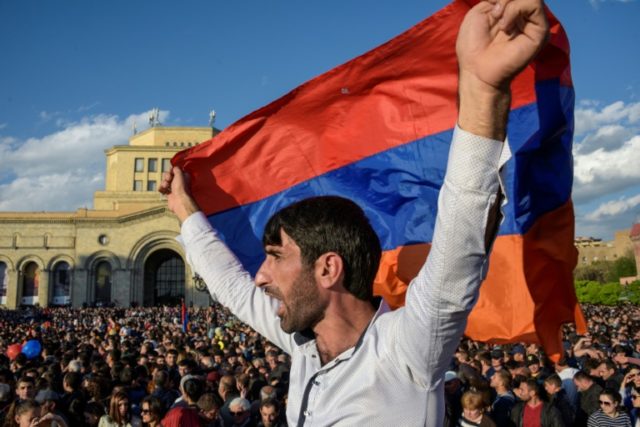Turkey’s Foreign Ministry issued a statement Wednesday condemning President Donald Trump for using the term Meds Yeghern (“Great calamity” in Armenian) to describe the Armenian genocide in his statement Tuesday.
Armenians observed the 103rd anniversary of the massacre of Armenian, Assyrian, and Greek Christians by the Ottoman Empire during the era of the Young Turks. Some estimates suggest that up to 1.2 million Armenians were killed in the assault, and millions more forever displaced from their homelands.
International law defines “genocide” as a systematic effort “with intent to destroy, in whole or in part, a national, ethnical, racial or religious group, as such.” That effort can include killing those within the group, “causing serious bodily or mental harm,” or creating “conditions” that would reasonably lead to their physical destruction, among other potential elements. Most genocide scholars recognize the targeting of Armenians by the Ottoman Empire in 1915 as one of the first modern genocides, as the Young Turks made clear their intent to change the demographics of the country and create an ethnically and religiously homogeneous state.
Turkey does not recognize the “events” as a genocide and instead claims that Muslims were killed in 1915, as well.
Armenians refer to the genocide as Meds Yeghern in their language.
“Today we commemorate the Meds Yeghern, one of the worst mass atrocities of the 20th century, when one and a half million Armenians were deported, massacred, or marched to their deaths in the final years of the Ottoman Empire,” President Donald Trump said in a statement Tuesday. “We recall the horrific events of 1915 and grieve for the lives lost and the many who suffered.”
The Turkish Foreign Ministry condemned the use of the term, even though President Trump has continued the tradition of U.S. presidents avoiding the word “genocide” to define the massacre. While most U.S. states have officially recognized the Armenian genocide, the federal government has avoided the use of the term. Armenian-Americans are one of the largest Armenian diaspora groups in the world and congregate every year to demand justice. On Tuesday, the largest observance of the genocide anniversary occurred in Los Angeles, where tens of thousands convened to demand Washington officially deem the killings a genocide. Deeming the killings a genocide would trigger a general duty in international law for the offending party to offer redress to the victims—and, in this case, likely a prolonged legal battle in international courts regarding what proper reparations would look like for the Armenian people.
“We reject the inaccurate expressions and the subjective interpretation of history in the written statement by Mr. Donald Trump, President of the U.S.A., released on 24 April 2018 regarding the events of 1915,” the statement read.
“Our expectation from the U.S. Administration is a fair assessment of a period during which all the peoples of the Ottoman Empire suffered tremendously,” it continued. “In this context, we remind President Trump that during the same period more than 500.000 Muslims were slaughtered as a result of the events in which Armenian insurgents took part.”
The statement concluded with praise for Trump for avoiding the word “genocide”: “We think it is in line with common sense that the statement made by the U.S. President remained within international legal norms and did not refer to baseless genocide allegations.”
Turkish President Recep Tayyip Erdoğan issued a statement Tuesday asserting that Ankara has a “conscientious and ethical responsibility to share the historical pain of our Armenian citizens.”
“We will continue to share your pain and try to resolve your problems in the future,” Erdoğan promised, while not acknowledging the genocidal nature of the attempt to destroy the Armenian ethnicity and Christian groups in Turkey generally.

COMMENTS
Please let us know if you're having issues with commenting.